Latest Archive
Free Newsletter
Apart from spawning fresh debate over the legal fog surrounding America’s drone war, the recent attack that killed American-born al Qaeda operative Anwar al-Awlaki has put the spotlight back on Yemen as a potential haven for Islamist terrorists — especially as the country edges closer to civil war. At the very least, the al-Awlaki case offers a window onto what Carrie Giardino, the director of strategic initiatives at IDS International, a national security consulting firm based in the Washington area, calls a unique problem that Yemen presents for the U.S. counterterrorism effort. Giardino told Trend Lines this week that a […]
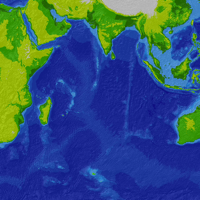
While much has been written about China’s port development projects in the Indian Ocean region, it is actually Beijing’s undersea activities in the area that may prove to be the greater source of consternation for India and its navy. In July, the China Ocean Mineral Resources Research and Development Association announced that it had secured approval from the International Seabed Authority (ISA) to explore the southwestern Indian Ocean ridge for polymetallic sulphide nodules. The move was not received well in Indian policymaking circles, which believe that it not only reflects Beijing’s intentions to extract resources from the Indian Ocean region […]
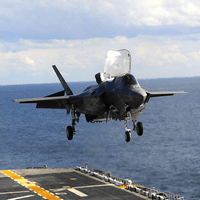
On Monday, an F-35B Lightning II Joint Strike Fighter completed its first vertical landing at sea, aboard the amphibious assault ship USS Wasp. The F-35B has been the most troubled of the problem-beset F-35 family, suffering from a variety of teething pains as well as concerns about range, payload and stealth characteristics. As the Defense Department worries about austerity, some have targeted the F-35, and the B model in particular, for cuts. A recent article in the Marine Corps Gazette suggested that the United States Marine Corps, heretofore the strongest proponent of the F-35B, should abandon the aircraft in favor […]
Sri Lanka recently announced plans to close the Vavuniya displacement camp, which housed 300,000 people displaced during the conflict with the rebel Liberation Tamil Tigers of Eelam (LTTE). In an email interview, Robert Muggah, a research fellow at the Graduate Institute of International and Development Studies and the author of “Relocation Failures in Sri Lanka: A Short History of Internal Displacement,” discussed Sri Lanka’s post-conflict relocation process. WPR: What progress has Sri Lanka made in relocating its internally displaced persons? Robert Muggah: “Progress” depends on whom you ask. Relief agencies claim that roughly 190,000 displaced people have been voluntarily “relocated” […]
Two recent currency devaluations and a mounting financial crisis have put a significant dent in the armor of Belarusian President Alexander Lukashenko. With his popularity now at its lowest rating since 2003, speculation has arisen over whether the authoritarian leader’s 11-year reign in the former Soviet republic may be nearing its final stages. However, the reality, according to Alex Nice, who coordinates the Russia and Eurasia Program at London’s Chatham House, is that “falling support for Lukashenko does not automatically mean that his government is unstable.” Nice reminded Trend Lines on Tuesday that Lukashenko has systematically intimidated his domestic foes […]
Serious communication gaps between the humanitarian sector and refugees in Dadaab, Kenya, are increasing refugee suffering and putting lives at risk, according to a new joint assessment report released by Internews, an international media development organization. Internews led the assessment and produced this video.
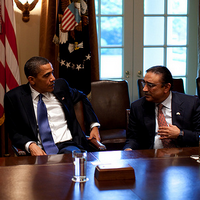
The recent U.S. claims that Pakistan’s intelligence service have aided attacks against U.S. troops in Afghanistan; the discovery that Osama bin Laden had been living for years in a safe house in central Pakistan; the U.S. special forces operation to attack his Pakistani compound without notifying Pakistani authorities; the disputes over U.S. drone strikes on Pakistani territory: These and other controversies are surface manifestations of a deeper “trust deficit” between the United States and Pakistan. On Sept. 22, then-Chairman of the U.S. Joint Chiefs of Staff Adm. Mike Mullen made explosive comments about the nature of the relationship between Pakistan’s […]
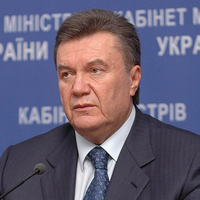
When Viktor Yanukovych finally ascended to the presidency of Ukraine in 2010, commentators could be forgiven for thinking that the era of caustic bilateral relations with Russia, Ukraine’s largest neighbor and former imperial ruler, would come to an end. That era of tension had begun in 2004, after the Orange Revolution sidelined the largely pro-Russian wing of the Ukrainian oligarchy. For the following six years, Kiev and Moscow clashed on a seemingly endless range of issues, from esoteric debates on the interpretation of Soviet history to major international events like the Georgian War. Natural gas, in particular, became a source […]

Last month I spent a couple of hours on the phone being interviewed for the next iteration of the National Intelligence Council’s global futures project. This one imagines the world in 2030, and the interview was part of the organization’s early polling process of experts around the world. I’ve participated similarly in previous iterations, and I’ve always found the NIC’s questions fascinating for how they reveal the group’s primary fears about the future. That’s not to say I dislike the NIC’s global projections, because I do. They tend to lack the alarmist hype of most future scenarios generated by the […]
Ukraine and Azerbaijan recently signed a deal on the supply of Azerbaijani liquefied natural gas to Ukraine. In an email interview, Natalia Shapovalova, a researcher at the Madrid-based think tank Fride, discussed Ukraine’s energy market. WPR: What is the current state of Ukraine’s energy relations with Russia? Natalia Shapovalova: Russia-Ukraine energy relations are difficult as both have diverging interests. Ukraine is interested in keeping gas prices low, the volumes and price of gas transit high and control over its gas pipeline independent. Russia wants just the opposite. Ukrainian President Victor Yanukovych’s government has tried to revise the 2009 contract with […]
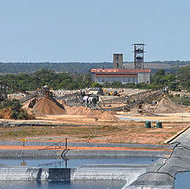
On Sept. 23, Zambian authorities announced that longtime opposition leader Michael Sata had won the country’s presidential election, held three days previously. Sata’s victory is notable for two reasons. First, African incumbents like outgoing President Rupiah Banda seldom lose elections. Second, Sata’s anti-China rhetoric has made Beijing nervous — and other observers curious — about whether Zambia will now spearhead an African backlash against Chinese economic activities on the continent. Anatomy of an African Opposition Victory Michael Sata, 74, began his career as a police officer and railway worker, before breaking into Zambian politics in the 1960s. His steady rise […]
